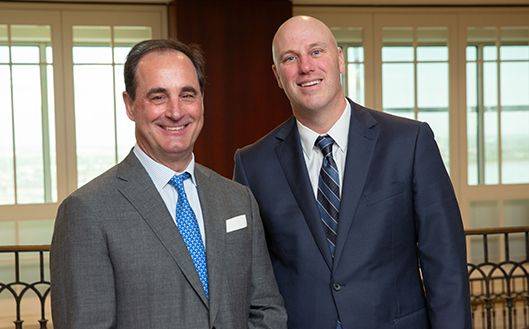AL Sets New Rules on Union Efforts for Employers Using Public Funds
Alabama Governor Kay Ivey announced on May 13 that she had signed a new law, SB 231. It penalizes Alabama employers receiving state or local economic development incentives if they voluntarily recognize labor unions, rather than require an election. Governor Ivey made her announcement on the first day of employee voting on a UAW unionization effort at the Mercedes-Benz factory in Vance, Alabama. The UAW lost that week-long vote. Fifty-six percent of voting workers (reportedly almost 4,700 of the 5,200 eligible workers) voted against forming a union.
Typically, upon a petition, the National Labor Relations Board (NLRB) will conduct a secret ballot union election if at least 30% of workers at a certain workplace sign union authorization cards. It then takes a majority of the voting workers to vote in favor of a union for the union to be formally recognized.
An employer may voluntarily recognize a union without an election. Employers should note, however, that in a recent decision, Cemex Construction Materials Pacific, LLC, the NLRB held that when a union presents an employer with a demand for recognition and union authorization cards signed by a majority of the workers (called “card check”), the employer must either recognize the union or “promptly” file a petition for an election. The NLRB ruled that “promptly” normally means within 14 days. This decision reversed over 50 years of precedent that permitted employers to ignore union signature cards and placed the onus on the union to petition for an election. The Cemex decision creates a time-sensitive dilemma for employers facing such a request. That choice will be even more acute under the new law for Alabama employers receiving economic incentives.
The new Alabama law, which will take effect on Oct. 1, 2024, provides for a stiff penalty against any employer that voluntarily recognizes a union if that employer also receives government economic incentives. The law states that no employer is eligible to receive an economic development incentive for a project in the state if the employer:
- Voluntarily grants union recognition rights for employees solely and exclusively based on signed labor organization authorization cards if the bargaining representative selection may be conducted through a secret ballot election
- Voluntarily discloses an employee’s personal contact information to a labor organization, or a third party acting on behalf of such an organization, without the employee’s prior written consent, unless that disclosure is otherwise required by state or federal law
- Requires a subcontractor to engage in any of the foregoing prohibited activities
Any employer that engages in prohibited activity under the new law shall be required to repay all economic development incentives received over the life of the project. The statute authorizes the Alabama Department of Revenue to investigate potential violations.
This new law does not apply to any economic incentive agreement between the state and an employer that is executed prior to Jan. 1, 2025. It also does not apply if an employer enters into a collective bargaining agreement with a labor organization or a secret ballot election occurs under applicable federal law before Oct. 1, 2024.
Like a majority of states, Alabama is a “right-to-work” state that permits employees to refuse to belong to a union. In 2016, Alabama voters approved a constitutional amendment that guarantees workers cannot be forced to join unions or pay union dues, even if their workplace is unionized. In published remarks, Governor Ivey stated that the new law is intended to protect workers by requiring a secret ballot election before a union is recognized. Georgia and Tennessee have recently passed similar laws.
Employers with questions or needing assistance should contact Michael E. Turner or any other member of the Phelps Labor and Employment team.



